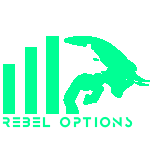Understanding Code-Consciousness: The Foundations of Personal Empowerment
In a world brimming with complexity, the concepts of self-awareness and emotional intelligence emerge as pivotal for personal growth and success. Yet, many individuals find themselves in a state of disconnection—experiencing what we call “codelessness.” This refers to a lack of engagement with the practical and social codes that define our lives, from the rules governing our relationships to the frameworks supporting career advancement. Understanding the importance of becoming code-conscious is essential for overcoming stagnation and building a life influenced by both power dynamics and personal empowerment.
At its core, emotional intelligence encompasses our ability to assess and manage our emotions, as well as the emotions of others. By developing emotional intelligence, we unlock the door to genuine self-awareness, allowing us to navigate life’s complexities with a clearer insight into our behaviors and the motivations behind them. When we embody self-awareness, we start to recognize the power systems around us, illuminating both the obstacles and pathways to success. This understanding can empower us to engage actively with the world, strengthening our ability to adapt to ever-changing circumstances.
Yet, the disconnect often arises when individuals fail to reflect deeply on their personal narratives. The urgency of daily life can lead to surface-level interactions, distracting us from the significant self-assessment necessary to truly evolve. To become code-conscious is to embrace a mindset of growth, where personal exploration and reflection become tools for developing emotional resilience. By adopting practices that encourage honest and constructive self-reflection, we learn to navigate the codes that shape our experiences and foster a desire for positive change.
Navigating Life Codes: The Intersection of Emotional Intelligence & Self-Assessment
Successful navigation of life’s complexities requires not just recognition, but a comprehensive understanding of the underlying codes that govern our interactions, decisions, and values. Emotional regulation plays a crucial role in this journey, enabling us to respond mindfully rather than react impulsively. As we develop emotional intelligence, we become more adept at identifying our feelings in various situations. Consequently, we build a framework to assess how our emotions impact decision-making and influence our relationships.
Self-assessment is a vital practice in this process. It encourages individuals to take stock of their strengths, weaknesses, motivations, and fears. Regularly engaging in self-reflection allows us to develop a deeper understanding of ourselves and our placeholders in society. This practice doesn’t merely yield insights into our lives; it is fundamental in recognizing power dynamics at play. As we hone our self-awareness, we learn to recognize the subtleties of interactions and the systems of influence that shape our professional and personal experiences.
Understanding the codes around us empowers us to strategize our paths to success. Whether through career advancement, personal relationships, or community engagement, recognizing power systems enables us to adapt our approaches and aspirations. By consciously navigating these life codes, we can dismantle the barriers of codelessness and embark on a journey of continuous growth. This transformative experience illuminates the path to achieving our goals and unlocking our true potential.
Building Emotional Resilience: Overcoming Stagnation and Preparing for Success
Achieving code-consciousness paves the way for building emotional resilience, a crucial ingredient in overcoming personal and professional stagnation. In a climate where quick fixes are often prioritized over mindful introspection, individuals may feel trapped in cycles of frustration and dependency on external validation. However, emotional resilience cultivates an internal compass, allowing us to navigate challenges with confidence and clarity.
As we develop emotional intelligence, we learn to embrace vulnerability as a strength rather than a weakness. This shift in perspective is liberating; it encourages us to confront our insecurities and respond to setbacks with constructive action rather than despair. Building emotional resilience is not about eliminating negative emotions but rather about understanding them as inherent parts of the journey. This nuanced appreciation allows us to engage authentically with the world around us, creating more meaningful connections and enriching our sense of community.
Ultimately, the path to success is marked by intentional growth and a commitment to understanding ourselves and our surroundings. By honing self-awareness and emotional intelligence, we transform experiences of disconnect into opportunities for empowerment. Recognizing that we have the power to reshape our narratives not only liberates us from stagnation but also inspires us to uplift those around us. Each conscious step we take not only unlocks potential within ourselves but also fosters a collective environment of growth and support.
Conclusion: From Codelessness to Code-Consciousness
The journey from being codeless to becoming code-conscious is one rich in self-discovery and empowerment. As we develop emotional intelligence and engage in meaningful self-assessment, we unveil pathways to personal and professional success. By recognizing power systems and navigating the intricate codes that define our experiences, we empower ourselves to shape fulfilling lives.
In our quest for growth, let us remember that true power lies not merely in knowledge or systems but in the connections we build and the resilience we forge. By actively engaging with our emotions and embracing self-awareness, we step into our potential, transforming stagnation into vibrant growth—together.





